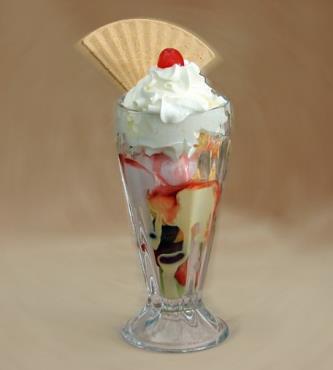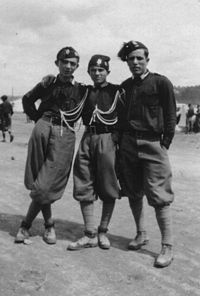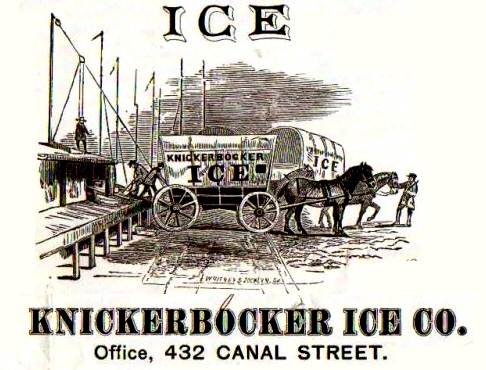
Knickerbocker sounds a rather comical, foreign word to a British person, and it can prove confusing. I once visited a restaurant whose pudding menu advertised the delights of a Knickerblocker Glory.
I was intrigued, but in the end prudence prevailed and I chose something else.
But what's with this knickerbocker, anyway? What is this thing?
Knickerbockers started off as baggy breeches, either ending below the knee or just above the ankle.

In the 1800s they were regarded as the traditional costume of Dutch settlers, and from there knickerbocker came to describe a descendant of the original Dutch settlers of New York, and later to mean any inhabitant of New York.
Knickerbocker has also lent its name to a beer, several clubs, many sports teams, a cocktail, and a storm.
Really not bad for something that started off meaning a pair of baggy trousers, is it.
Word To Use Today: knickerbocker. The inhabitant-of-New-York meaning comes from Washington Irving's 1809 History of New York.
The British ice cream sundae name is a bit of a mystery. In the 1920s Lyon's Corner House cafes produced a range of puddings named, strangely, after items of clothing - the Plus Four and the Charlie Chaplin Waistcoat were amongst them, and the Knickerbocker Glory may have been one of those.
Or perhaps (even though the Knickerbocker Glory does seem to be strictly British) it may be something to do with the New York firm the Knickerbocker Ice Co.

No comments:
Post a Comment
All comments are very welcome, but please make them suitable for The Word Den's family audience.